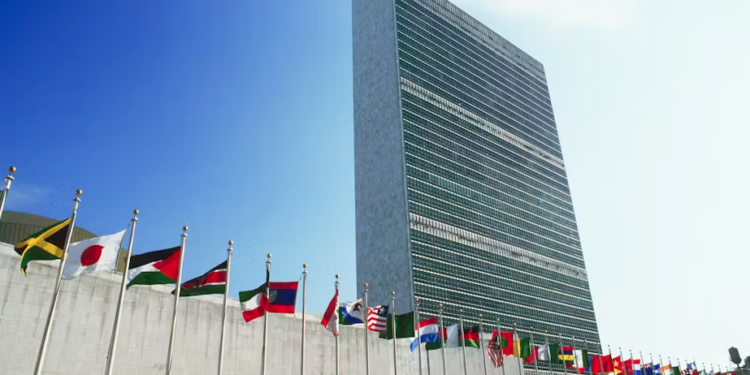Dec 15, 2024 Story by: Editor
NAIROBI, Kenya — Three contenders vying for the leadership of the African Union (AU) laid out their visions for addressing regional security, political stability, and inter-Africa trade during a debate held on Friday.
Kenya’s Raila Odinga, Djibouti’s Mahamoud Ali Youssouf, and Madagascar’s Richard Randriamandrato are competing for the chairperson role of the 55-member AU, which will hold its election in February to choose a successor for Moussa Faki, the current chairperson who has served two terms.
During the two-hour debate in Addis Ababa, Ethiopia, the candidates collectively emphasized the need for Africa to have a stronger voice on the global stage, particularly through securing two permanent seats with veto power on the U.N. Security Council (UNSC).
Advocating for African Representation
Odinga described the allocation of two permanent UNSC seats as “a must for Africa,” arguing it is “only fair” for a continent with over 50 countries.
Randriamandrato stressed the importance of unity among African nations in making this a reality, urging member states to “speak with one voice on the choice of who will represent Africa in the UNSC.”
Tackling Regional Security
With conflicts and political coups affecting several member states, regional security emerged as a central theme of the debate. Five AU member states have been expelled due to political coups, underscoring the challenges facing the union.
Youssouf proposed increasing resources for a regional standby force to reduce dependency on foreign partnerships. “When there is no unity of purpose among neighboring countries, peace will be compromised,” he warned.
Randriamandrato advocated for nations to prioritize internal security measures while calling for the elimination of foreign military bases, which he described as potential “sources of conflict.”
Strengthening Inter-Africa Trade
Despite Africa’s rapidly growing population of 1.3 billion, expected to double by 2050, intra-continental trade remains underdeveloped. The candidates outlined strategies to boost economic integration and trade.
Odinga highlighted Africa’s “huge domestic market” as a key driver for economic transformation, emphasizing the importance of creating more opportunities for trade within the continent.
Youssouf proposed a payment compensation system to address challenges related to trading in different currencies, suggesting that Africa could eventually move toward adopting a single currency, saying, “Are we going to have a single currency? Why not?”
Randriamandrato pointed to regional economic blocs, such as the Common Market for Eastern and Southern Africa, as critical tools for simplifying and promoting inter-Africa trade.
Promising Reforms
All three candidates pledged to implement reforms within the African Union to enhance its effectiveness. Proposed changes include structural and leadership adjustments aimed at improving the AU’s capacity to address its key objectives.
Youssouf acknowledged funding challenges as a significant hurdle to reforms, stating, “It has to change.” He added that while he would not impose reforms on member states, he would “advocate for it.”
The candidates will now work to secure the support of a majority of African nations ahead of the February election, where the next chairperson will be decided. Source: ABC News

















